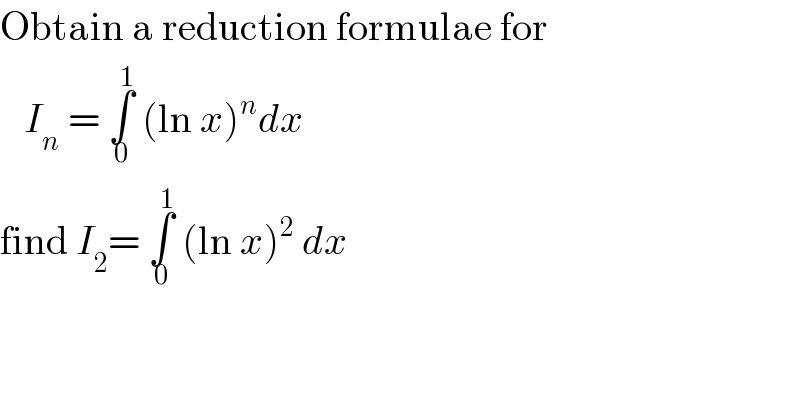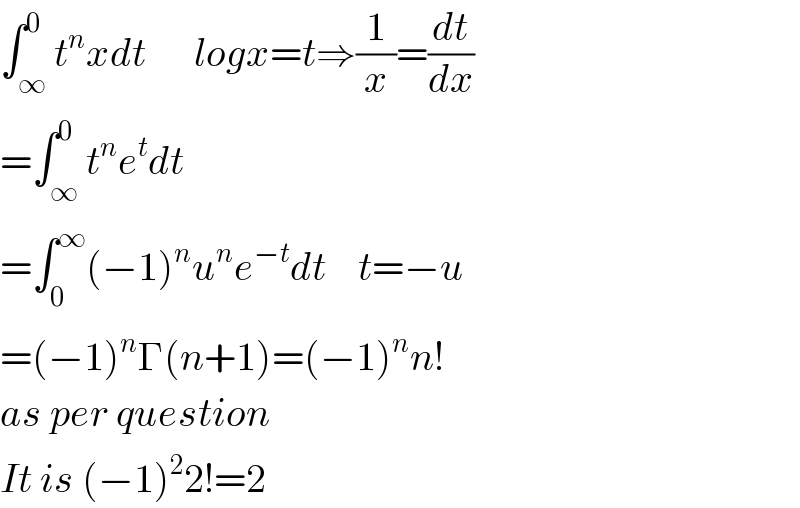
Question and Answers Forum
Question Number 122186 by physicstutes last updated on 14/Nov/20

Answered by Olaf last updated on 14/Nov/20
![I_n = ∫_0 ^1 ln^n xdx I_0 = 1 and for n ≥ 1 : I_n = [xln^n x]_0 ^1 −∫_0 ^1 x(n(1/x)ln^(n−1) x)dx I_n = −n∫_0 ^1 ln^(n−1) xdx = −nI_(n−1) ⇒ I_n = (−1)^n n!I_0 = (−1)^n n! If n = 2, I_2 = (−1)^2 2! = 2](Q122188.png)
Commented by physicstutes last updated on 14/Nov/20

Answered by Dwaipayan Shikari last updated on 14/Nov/20

Commented by physicstutes last updated on 14/Nov/20

